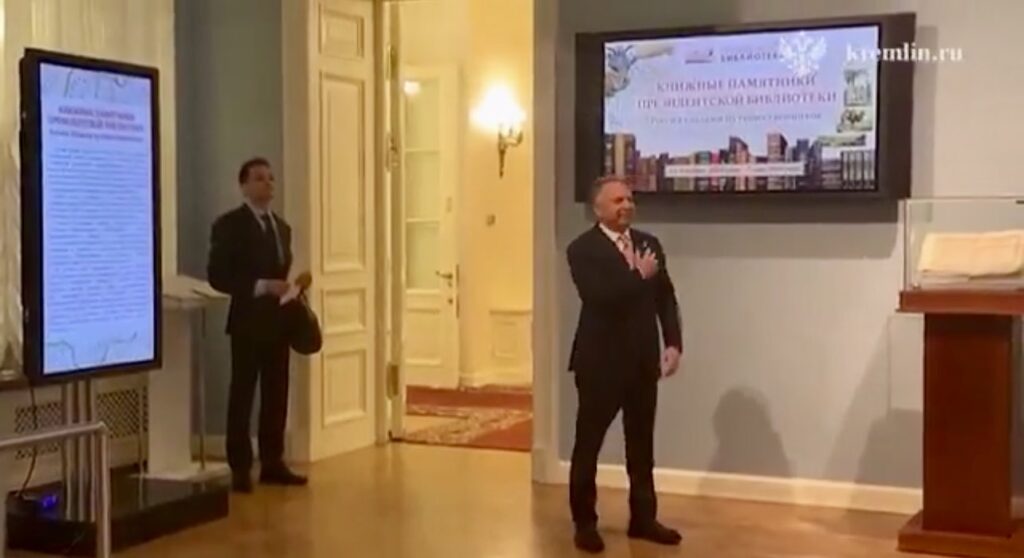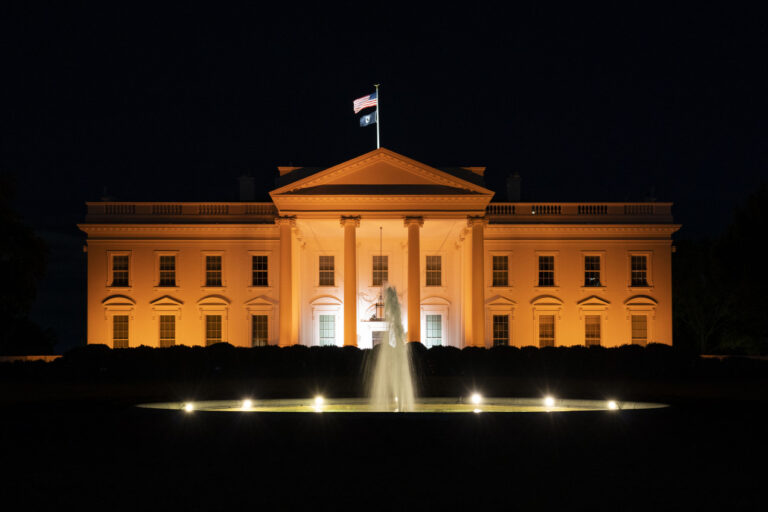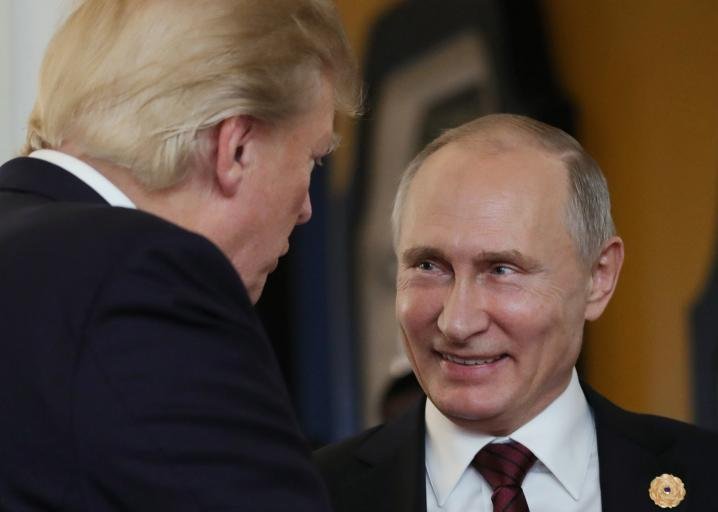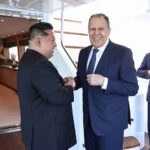The Trump administration’s persistent failure to grasp that Russia will never enter into a genuine, equitable deal with the United States reflects a profound misunderstanding of Moscow’s strategic culture and a complex web of internal contradictions within the administration itself. This miscalculation is deeply intertwined with the biases and backgrounds of key advisers, the president’s own checkered history with Russian actors, ongoing financial entanglements, the systematic purging of seasoned intelligence officials in favor of loyalists, the infiltration of conspiracy-minded figures, and a fractured political opposition unwilling or unable to hold the president accountable. Together, these factors create a dangerously skewed policy environment in which Russia’s Cold War-era mindset remains unchallenged, allowing Moscow’s ambition to humiliate and weaken Washington to play out with little restraint.
Moscow’s approach to the United States remains entrenched in the logic of the Cold War, a framework forged by decades of ideological conflict and mutual suspicion. Russia views itself not simply as a great power but as a civilization-state encircled by adversaries seeking to diminish it. This historical narrative feeds a zero-sum mindset where any concession is perceived as weakness and any engagement an opportunity to advance influence at Washington’s expense. The Kremlin’s insistence on public displays of dominance, including overt acts aimed at humiliating U.S. leadership, serves a domestic purpose of bolstering national pride and reinforcing the image of a resurgent Russia.
The current U.S. administration’s failure to grasp this paradigm stems from an overreliance on conventional diplomatic tools and underestimation of the performative dimension of Russian foreign policy. Unlike the détente era when mutual interests allowed for incremental cooperation, today’s Russia sees strategic rivalry as an arena for symbolic contests of power. The Kremlin’s hostility is not simply about specific policy points such as arms control or regional conflicts but about sustaining a narrative that positions Russia as an indispensable actor resisting Western hegemony.
Russian leadership’s actions, including election interference, military interventions, and relentless propaganda campaigns, are calibrated to reinforce this paradigm. These moves are not aberrations but consistent tactics aimed at eroding U.S. influence and undermining Washington’s legitimacy domestically and globally. The Kremlin’s strategy deliberately seeks to provoke and destabilize, knowing that a humbled America serves Moscow’s long-term interests better than any formal agreement.
This Cold War mindset is further entrenched by Russia’s security doctrine and geopolitical imperatives. Surrounded by NATO’s expanding footprint and facing economic sanctions, Moscow perceives existential threats that justify aggressive posturing. The refusal to move beyond rivalry is rooted in a deep-seated conviction that cooperation risks strategic vulnerability. Consequently, Russian policy is geared toward maintaining a posture of resistance rather than engagement.
From Washington’s perspective, this reality demands a recalibration of expectations. Seeking a comprehensive deal without addressing the underlying strategic and psychological factors will only perpetuate cycles of disappointment and miscommunication. The Trump administration’s approach reflects a blend of transactional diplomacy and public posturing that fails to penetrate Russia’s complex strategic culture.
In essence, Russia’s continuation in the Cold War paradigm is less a choice than an ingrained worldview shaped by history, identity, and security concerns. Any U.S. strategy that ignores these dimensions will struggle to achieve meaningful breakthroughs. To engage Russia effectively, Washington must first acknowledge that the Kremlin’s objectives extend beyond short-term deals and are embedded in a broader contest over global order and status. Without this recognition, efforts to “reset” relations are likely to falter amid continued Russian attempts to exploit U.S. political vulnerabilities.
Several senior advisers and cabinet members in the Trump orbit have demonstrated a pattern of sympathetic views toward Russia, which softens their posture and clouds strategic clarity. Figures like Steve Witkoff, known for his business ties and pragmatic, deal-focused mindset, often downplayed Russia’s broader geopolitical ambitions in favor of transactional gains. Witkoff’s focus on property and investment deals blurred the lines between national security interests and commercial incentives, fostering an environment where economic expediency risked overriding hard-nosed geopolitical realities. Similarly, Tulsi Gabbard, with her vocal skepticism of interventionist U.S. foreign policy, often argued for rapprochement and engagement, which, while principled in its anti-war stance, sometimes lacked the nuance to counter Moscow’s calculated disinformation and destabilization tactics.
President Trump himself carries a complicated personal and financial legacy that colors the administration’s approach. His past business dealings, often entangled with figures linked to Russian organized crime, create an inherent conflict of interest. The well-documented pursuit of lucrative real estate projects in Russia and the consistent admiration Trump expressed for authoritarian leaders have raised questions about his ability to maintain a firm, principled stance toward Moscow. This personal history contributes to a president more susceptible to flattery and less inclined to confront Russian transgressions aggressively, even when such actions directly undermine American interests.
Moreover, Trump’s public admiration for authoritarian leaders, including Vladimir Putin, further muddied the administration’s posture. His repeated praise of Putin’s leadership style and skepticism of Western democratic norms signaled an ideological affinity that diverged sharply from traditional U.S. policy grounded in liberal values. This admiration emboldened Moscow, encouraging it to escalate its provocations with little fear of direct confrontation. The 2018 Helsinki summit starkly revealed this dynamic, when Trump publicly accepted Putin’s denials of election interference over the conclusions of U.S. intelligence agencies, igniting bipartisan outrage and reinforcing perceptions of presidential acquiescence.
Compounding this are the financial entanglements that permeate Trump’s circle. His sprawling business empire, often reliant on opaque financing and international capital flows, raises the specter of indirect influence that undercuts a coherent policy toward Russia. The blurred boundaries between private gain and public duty dilute the administration’s capacity for a unified, tough response. This situation creates fertile ground for Russian actors to exploit internal divisions and extract concessions without formal negotiations.
At the center of this debacle is Witkoff, the Special Envoy for the Middle East, whose personal and financial ties to Qatar create a tangled web of conflicting interests that compromise his judgment. Witkoff’s Qatar connections obscure his ability to evaluate Russia’s strategic maneuvers dispassionately, introducing bias into U.S. foreign policy decisions. His role in the infamous Order of Lenin episode exemplifies this failure in stark relief. Acting as a conduit for Moscow, Witkoff facilitates the awarding of the Order of Lenin, which was the Soviet Union’s highest honor, revived by Putin as a symbol of Russian imperial nostalgia, to Michael Gloss, a former American who defected and fought on Russia’s side in Ukraine before his death in combat. This award is not a benign diplomatic gesture but a calculated act of humiliation against the United States and its intelligence community. The symbolic gravity of this insult is magnified by the fact that Gloss’s mother, Juliane Gallina, is Deputy Director of the CIA for Digital Innovation, making the Kremlin’s brazen flaunting of its power a direct affront to the heart of American intelligence. Witkoff’s acquiescence to this arrangement, coupled with the administration’s deafening silence, particularly Trump’s refusal to condemn or even acknowledge the episode, underscores a dangerous tolerance for Russian provocations that erode American credibility on the global stage.
Witkoff’s repeated misjudgments also precipitate diplomatic disasters such as the Alaska summit invitation. His fundamental misunderstanding of Moscow’s intentions , rooted in destabilization and strategic subversion rather than genuine negotiations, lead to an ill-advised opening that Russia exploited as a platform for propaganda and influence operations. This invitation starkly reveals the administration’s inability to confront Moscow’s long-term designs and instead offers it a stage to advance disinformation and geopolitical gains at America’s expense. The episode resulted in the policy of inviting Vladimir Putin to participate in a one-on-one summit with President Trump in Alaska, which has alarmed Ukraine as well as European officials. Putin’s land for peace proposal was rejected by President Zelensky, but there are growing concerns that Trump will make significant unilateral concessions on the US behalf or pressure Ukraine into conceding strategic territory to advance Trump’s dream of securing an agreement with Russia.
The administration’s internal dysfunction is further magnified by the Signalgate scandal, which exposes how systemic lapses in security protocols, combined with deliberate circumvention by certain officials, create openings for intelligence manipulation and unauthorized leaks. These breaches not only jeopardize national security but also reflect a broader pattern of sacrificing sound intelligence practices to protect political loyalties and narratives. This environment fosters confusion, impedes cohesive strategy, and emboldens foreign adversaries. Steve Witkoff’s business dealings in Russia have rendered him susceptible to Kremlin influence, raising legitimate concerns within the intelligence community about compromised channels of communication and operational security. The Signalgate scandal exposed how Russian intelligence exploited these vulnerabilities, most likely intercepting and accessing Witkoff’s private communications when he gave up his phone to Russian operatives fore eight hours, while various high level US officials were discussing classified or sensitive information in a private chat, and thereby eroding the integrity of American diplomatic efforts. This breach highlights how Moscow’s hybrid warfare strategy extends beyond traditional espionage into exploiting the administration’s internal weaknesses.
Tulsi Gabbard, serving as the Director of National Intelligence, compounds this fractured landscape. Throughout her tenure, she has repeatedly circumvented security protocols to selectively leak intelligence. She manipulates classified information to portray Russiagate as an elaborate hoax designed to please Donald Trump by validating his ego and satisfying his resentment toward Obama-era officials. Despite overwhelming bipartisan evidence documented in the 2016 Senate Intelligence Committee report detailing Russia’s systematic campaign to infiltrate the Trump campaign, Gabbard advances a false narrative that minimizes these threats. Her amplification of Russian disinformation includes retweeting Ian Miles Cheong, a known Russian troll who posts on X false denials of the Bucha massacre. By undermining the integrity of U.S. intelligence assessments, Gabbard weakens the nation’s ability to respond strategically to Moscow’s hybrid warfare.
The Senate Intelligence Committee’s 2016 report revealed the depth of Kremlin infiltration into the Trump campaign. Operatives such as Konstantin Kilimnik played pivotal roles in coordinating covert contacts between Russian intelligence and campaign officials. Kilimnik’s escape from U.S. prosecution underscores Russia’s ability to shield key operatives. Several campaign figures including Paul Manafort, Rick Gates, George Papadopoulos, and Michael Flynn were arrested or remain under scrutiny for their Russian ties. These were not isolated incidents but components of an orchestrated Kremlin strategy to influence the election and embed proxies within the incoming administration. Moreover, Russian intelligence operatives like Maria Butina, arrested in the United States yet emblematic of a broader network, demonstrated Moscow’s continuing clandestine efforts to manipulate American political processes.
One of the most damaging moves was the steady sidelining and replacement of experienced intelligence officials who had a clear understanding of Russian tactics and intentions. The removal of seasoned figures, often replaced by political loyalists with limited expertise or deep skepticism of established intelligence assessments, fundamentally weakened the administration’s institutional memory and analytical rigor. This purge undercut the capacity of agencies like the CIA, NSA, and FBI to provide objective, actionable intelligence on Moscow’s hybrid warfare, election interference, and cyber operations. When key assessments were dismissed as “fake news” or politically motivated, the administration’s ability to mount a unified response fractured.
The infiltration of controversial figures with conspiratorial worldviews further distorted the policy environment.
Laura Loomer plays a significant role in the ecosystem of disinformation and conspiracy theories that have clouded public understanding of Russiagate and U.S.-Russia relations. As a far-right activist and provocateur, Loomer has consistently amplified false narratives that align with efforts to delegitimize legitimate investigations into Russian interference. She has actively promoted conspiracy theories suggesting that Russiagate was an elaborate hoax engineered by the so-called “deep state” to undermine President Trump. This disinformation campaign directly feeds into the administration’s own biases and the efforts of figures like Tulsi Gabbard, who similarly sought to dismiss the threat of Russian meddling and downplay credible intelligence.
Loomer’s dissemination of falsehoods serves multiple purposes: it energizes a segment of the Trump base desperate to believe in conspiracies that absolve the president of wrongdoing, it sows confusion within the broader public, and it helps protect figures with documented ties to Russia by distracting from the evidence. Her actions also intersect with Russian disinformation efforts, including retweeting posts by known Russian-linked accounts like Ian Miles Cheong, who has publicly denied atrocities such as the Bucha massacre despite overwhelming evidence. This coordination between domestic actors like Loomer and Russian operatives amplifies Moscow’s ability to shape narratives favorable to its strategic interests.
These developments did not occur in isolation. The personnel shifts dovetailed with Trump’s own predispositions and financial conflicts, reinforcing a cycle of denial and accommodation. As intelligence officials who warned of Russian aggression were pushed aside or discredited, Trump’s expressed admiration for Putin went largely unchecked, sending contradictory signals to allies and adversaries alike. The resulting policy incoherence diminished U.S. credibility and capacity to coordinate with European partners on countering Russian malign influence.
At the same time, this internal chaos allowed Moscow to manipulate U.S. domestic politics with greater ease. The Kremlin’s disinformation campaigns thrived amid the administration’s distrust of its own intelligence apparatus, making it difficult to present a unified front. This fragmentation benefited Russia strategically, enabling it to sow division, weaken democratic institutions, and erode public trust in the government’s ability to protect national security.
In the context of the Trump administration’s failure to adequately confront Russian aggression and infiltration, Loomer exemplifies how grassroots-level disinformation campaigns complement official or semi-official denialism. Her role is part of a larger matrix of political figures, media personalities, and social media influencers who collectively undermine intelligence assessments, attack career officials, and promote an alternative reality that serves both Moscow’s aims and Trump’s personal vendettas against Obama-era officials and the intelligence community.
President Trump’s entanglement with Russia further complicates policy clarity. His longstanding financial ventures ranging from the 2013 Miss Universe pageant to attempts at constructing Trump Tower Moscow expose a pattern of opaque dealings involving Kremlin-linked oligarchs. These relationships generate conflicts of interest that dilute a firm U.S. stance toward Moscow. Trump’s public admiration for Vladimir Putin and repeated skepticism toward Western democratic institutions reflect an ideological alignment at odds with traditional American values. The 2018 Helsinki summit crystallized these tensions when Trump publicly sided with Putin’s denial of election interference dismissing the consensus of U.S. intelligence agencies. This moment revealed the president’s profound susceptibility to Kremlin influence and intensified bipartisan condemnation.
Financial conflicts permeate Trump’s broader business empire where incomplete divestment from real estate holdings invites ongoing influence from Russian and other foreign capital. These unresolved entanglements present vulnerabilities Moscow can exploit to shape American foreign policy. Collectively, these factors render the Trump administration unable or unwilling to challenge Russia’s enduring ambition to destabilize the United States and the transatlantic alliance. The result is a dangerously permissive environment that Moscow exploits to its advantage humiliating U.S. intelligence and eroding trust in democratic institutions.
Meanwhile, traditional Russia hawks within the Republican Party, such as Senator Marco Rubio, faced their own dilemmas. Rubio’s vocal criticism of Moscow is well known, but during the Trump years, he and others often hesitated to openly challenge the president’s Russia approach. Partisan loyalty, fears of political retribution, and strategic calculations about preserving influence in a polarized environment led to muted opposition. This reluctance to confront the administration internally allowed the softening of the U.S. stance to persist unchecked, sending signals of weakness to Moscow.
These internal dynamics converge to create a paradox where the Trump administration’s posture toward Russia mixes rhetorical toughness with practical ambivalence. The strategic theater of public denunciations masks an underlying pattern of accommodation driven by personal, financial, and political factors. Moscow exploits this ambiguity, operating under the assumption that Washington’s resolve is fractured and vulnerable to pressure and manipulation.
This environment leaves Russia free to perpetuate Cold War-era tactics of disinformation, election interference, and regional aggression without fear of meaningful, sustained pushback. The Kremlin’s strategy is to humiliate and weaken Washington in ways that resonate domestically for Trump and his allies, undermining U.S. credibility while shoring up Moscow’s own nationalist narrative. The result is a geopolitical impasse shaped less by rational negotiation and more by the interplay of personalities, interests, and strategic insecurities on both sides.
Ultimately, the Trump administration’s failure to see that Russia’s ambitions transcend transactional diplomacy is rooted in a constellation of biases and conflicts that distort policy judgment. Overcoming this will require not only a recalibration of U.S. strategy but also a reckoning with the tangled personal and political factors that have long clouded American engagement with Russia. Without addressing these internal fractures, Washington risks perpetuating a cycle of misperception and manipulation, leaving the Cold War paradigm firmly intact.

More on this story: Analysis: Outcomes of the Witkoff Visit to Moscow





